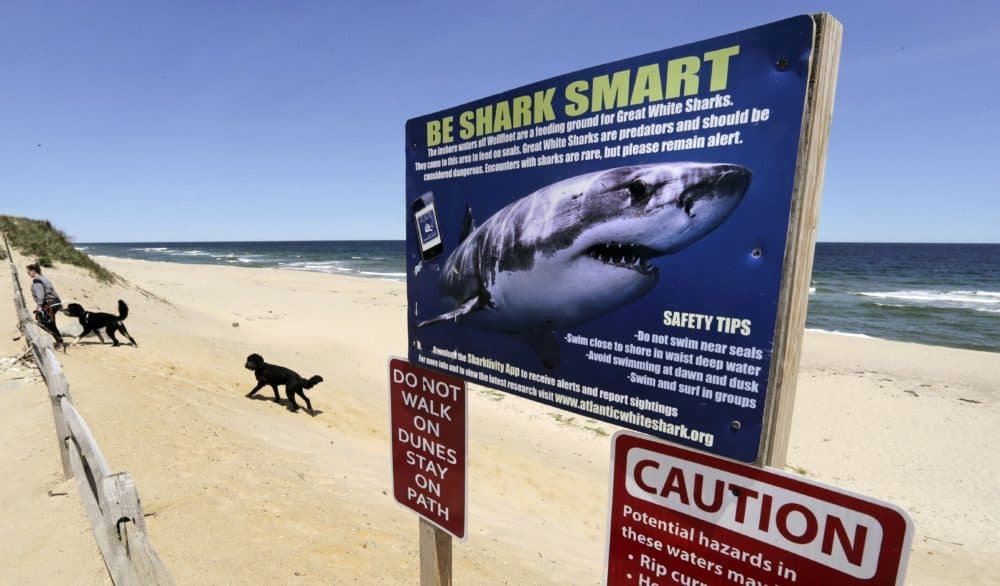Advertisement
Maine Will Have Shark Warning After Fatal Attack Last Year

Maine state coastal parks will adopt a flag system used in Massachusetts to warn beachgoers of the presence of sharks.
The move comes after the state's first documented fatal shark attack in the state last summer. A woman was killed on July 27, 2020, by a great white while swimming about 20 yards offshore in Harpswell.
“Sharks aren’t new to the state, but the horrible tragedy last year raised everyone’s awareness,” Gary Best, state park regional manager at the Department of Agriculture, Conservation and Forestry, told the Times Record.
The shark warning flag is widely used in Cape Cod, which sees more white sharks than Maine, Best said.
The flag — purple with a white shark silhouette in the middle — will also be hoisted in Harpswell when a shark is seen in nearby waters.
The flag will be visible at Mitchell Field, Mackerel Cove and Cedar Beach when there is a reported shark sighting within a quarter mile, said Arthur Howe, Harpswell’s fire administrator and emergency management agent.
The flag isn’t intended to alarm people, but to keep them “aware and educated that we have sharks in our waters,” Howe said.
Shark sightings could become more frequent in Maine because they’re drawn to the state’s healthy seal population.
“Seals are the food source of white sharks, and if there’s a lot of food around, you’re going to undoubtedly have more sharks taking advantage of it," said James Sulikowski, a former University of New England professor who conducts shark research in Maine and worldwide.